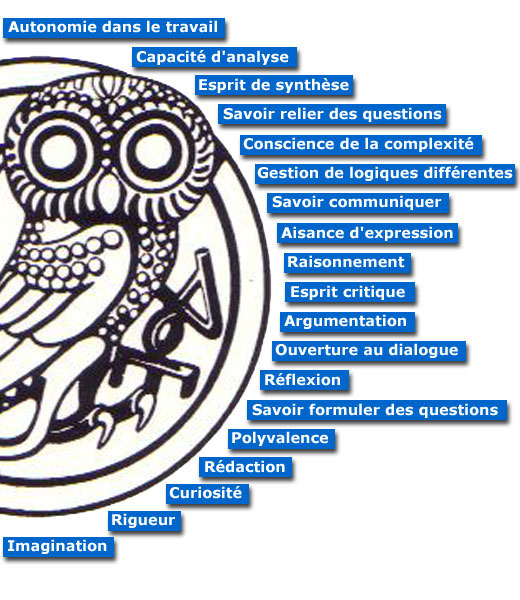After your degree
It is often said that a degree in the humanities opens all doors or leads to nowhere. Unlike other programs, a degree in the humanities generally does not lead to a specific career. You should plan ahead for your future career since you may need additional professional experience when applying for jobs.
Our graduates have found work in teaching, journalism, radio, television, publishing, libraries, resource centers, archives, bookstores, museums, heritage institutions, international organizations, diplomatic corps, companies, banks, administration, management, tourism, public relations, cultural entertainment, art business, art galleries, creative writing, linguistics and philosophy.
What employers are looking for
Knowledge
- Most jobs require computer and language skills.
- Research the field that interests you and find out what specific skills you will need.
Experience
- Over 75% of students who work during their studies find jobs shortly after finishing their degrees.
- Internships or temporary contracts are available for students in banks, humanitarian organizations, companies, international organizations, newspapers, development agencies, schools, etc.
Qualities
- Most employers look for qualities such as flexibility, adaptability and a desire to learn. Do some research to find out what specific qualities are required for the jobs that interest you.
Plan ahead for you future career
At the beginning of your studies
- Find out how you can get professional experience during your studies. Talk to teachers, academic advisors, staff at the Centre de carrière and the Office d'orientation et de formation professionnelle (Office for professional guidance and training).
During your studies
- Take action. Get the knowledge, skills and experience you will need for your future career. Participate in the career days organized by the Faculty of Humanities.
At the end of your studies
- Perfect your job searching skills: learn how to research jobs, put together a CV and ace an interview.
What you will get out of a degree in the humanities

